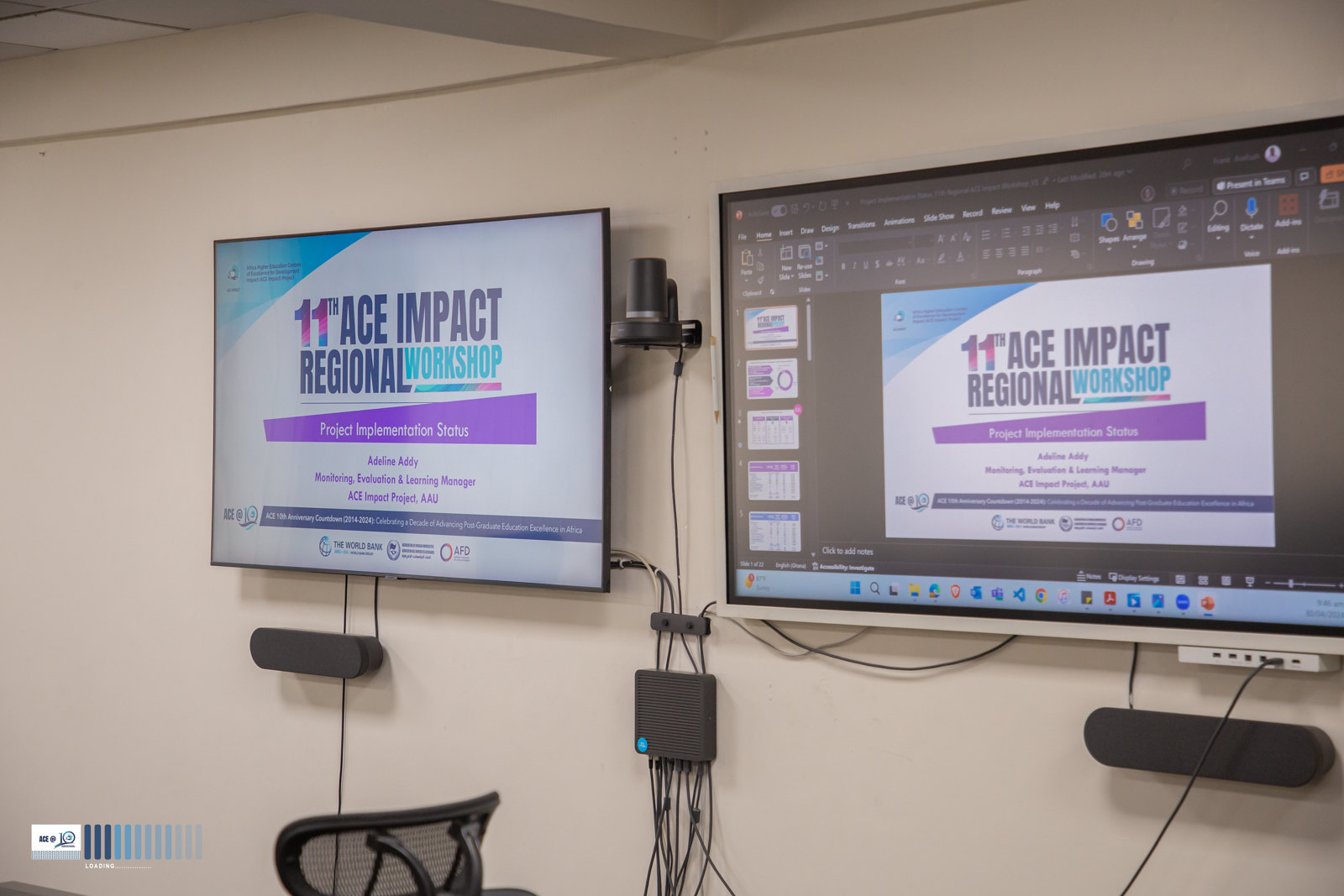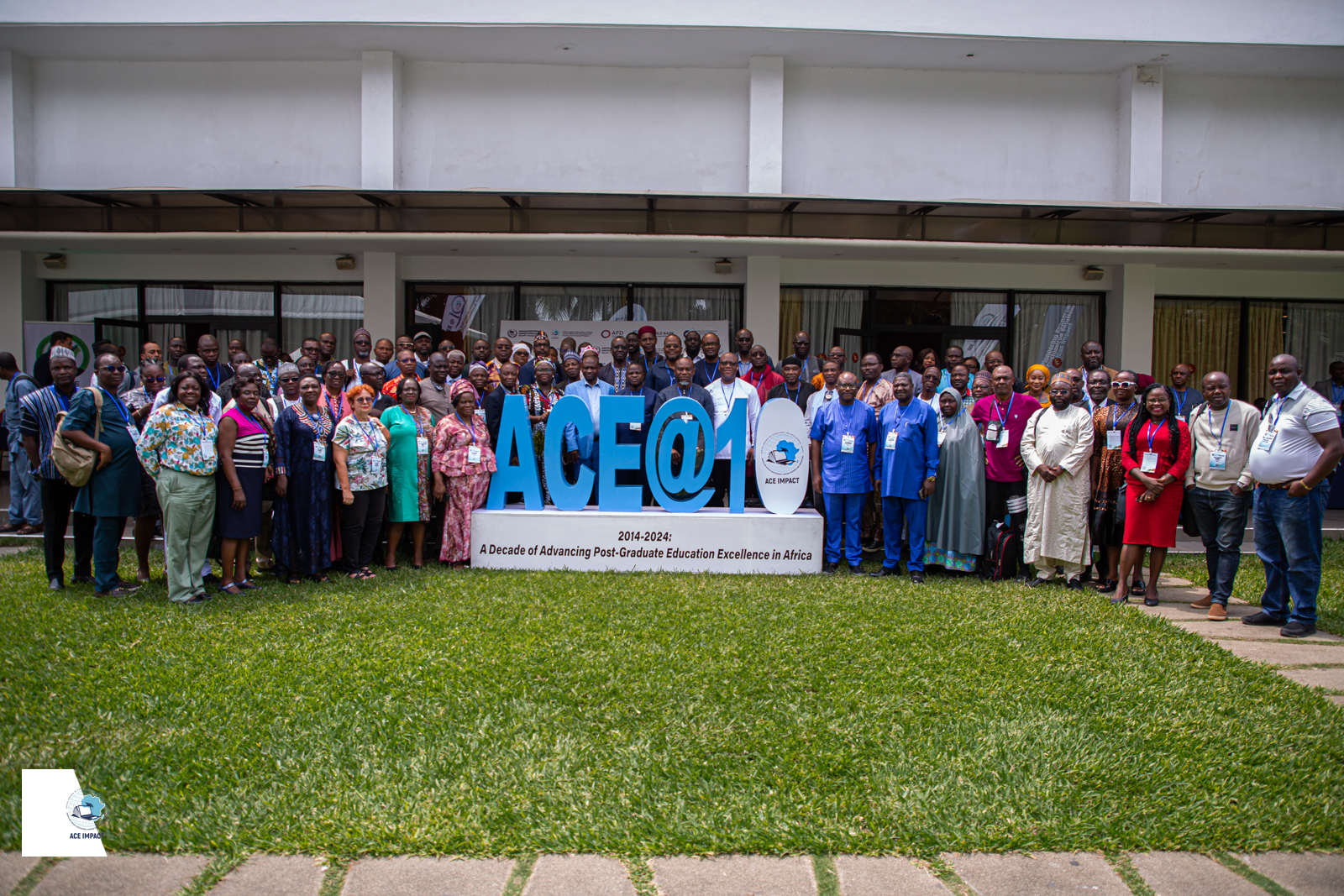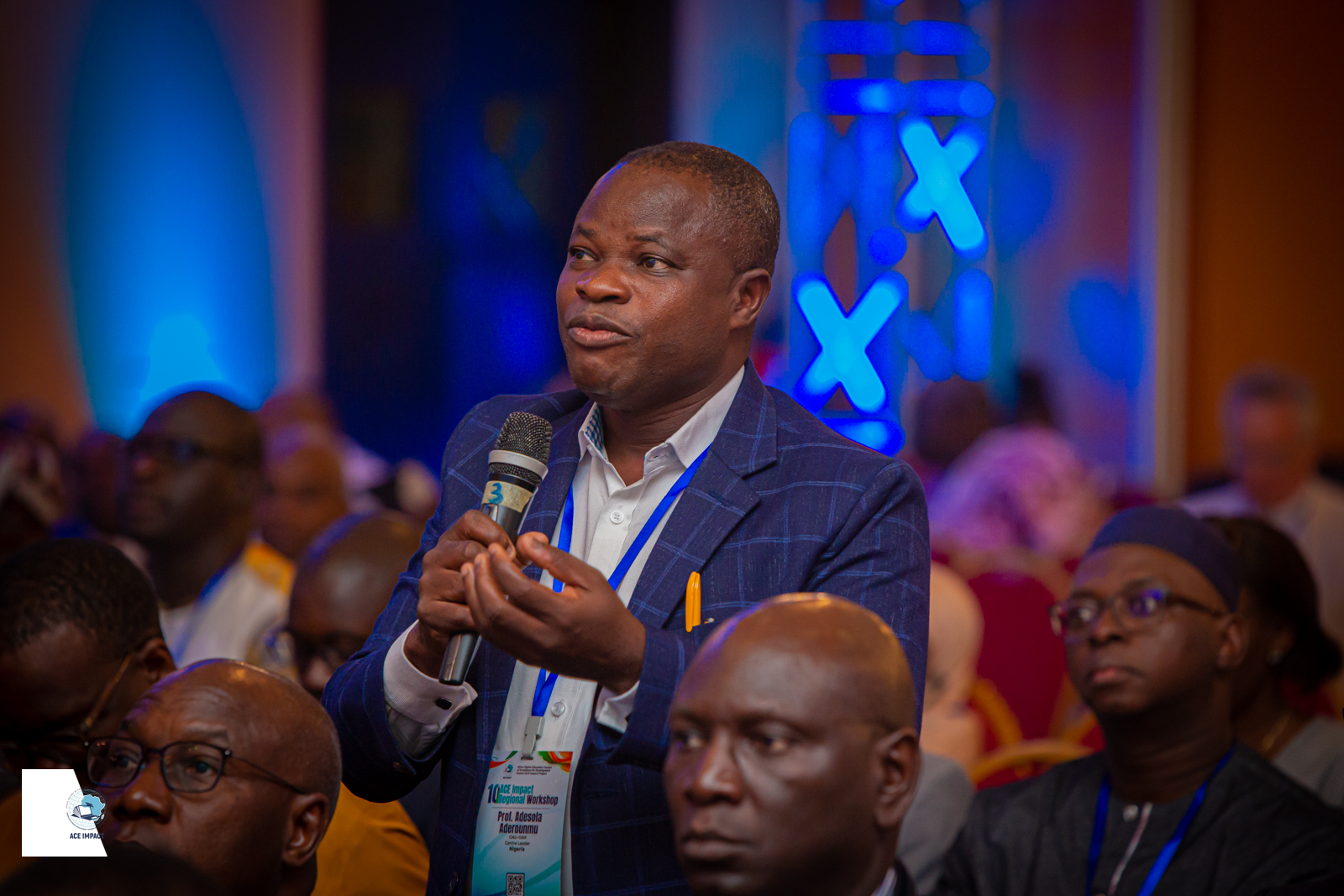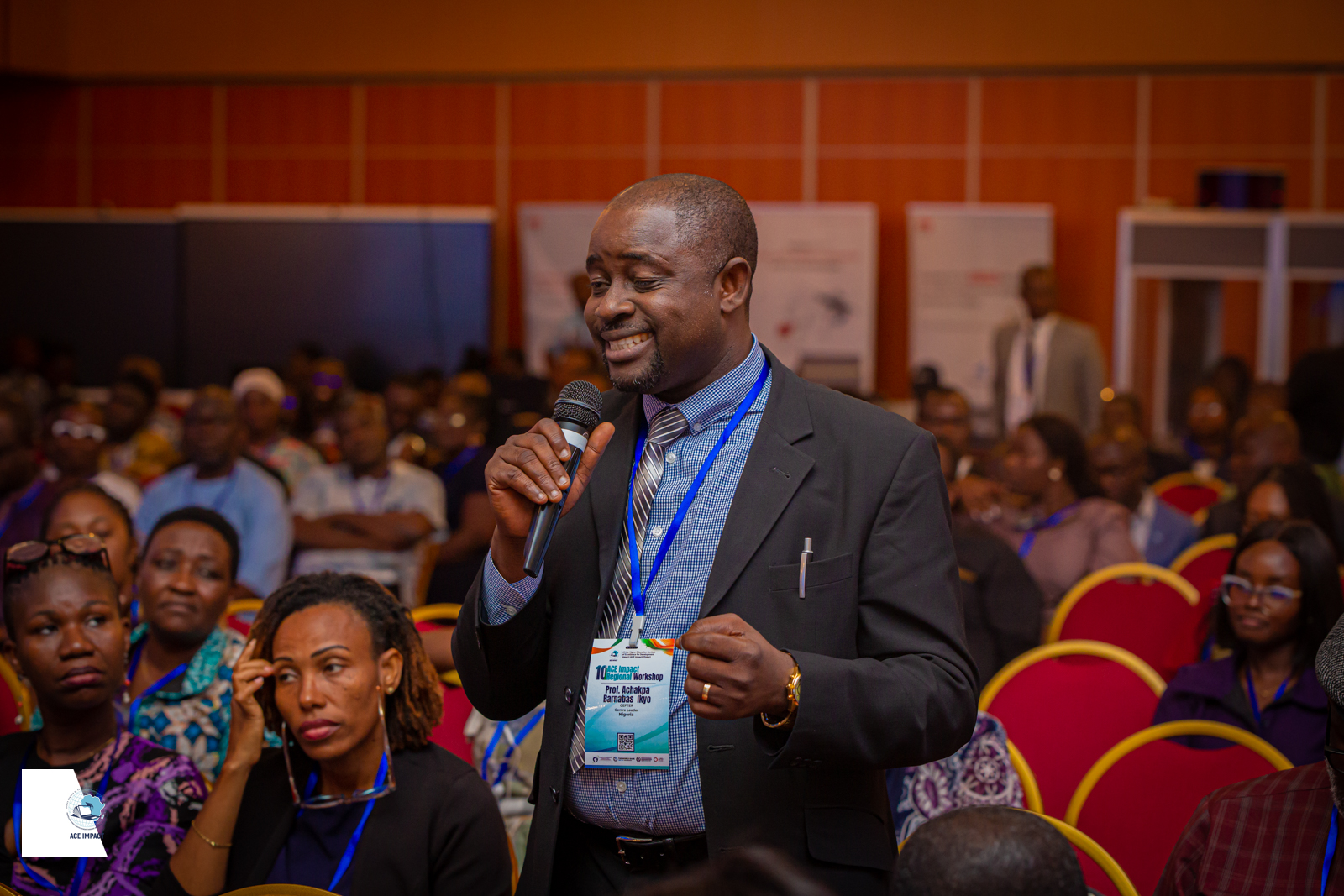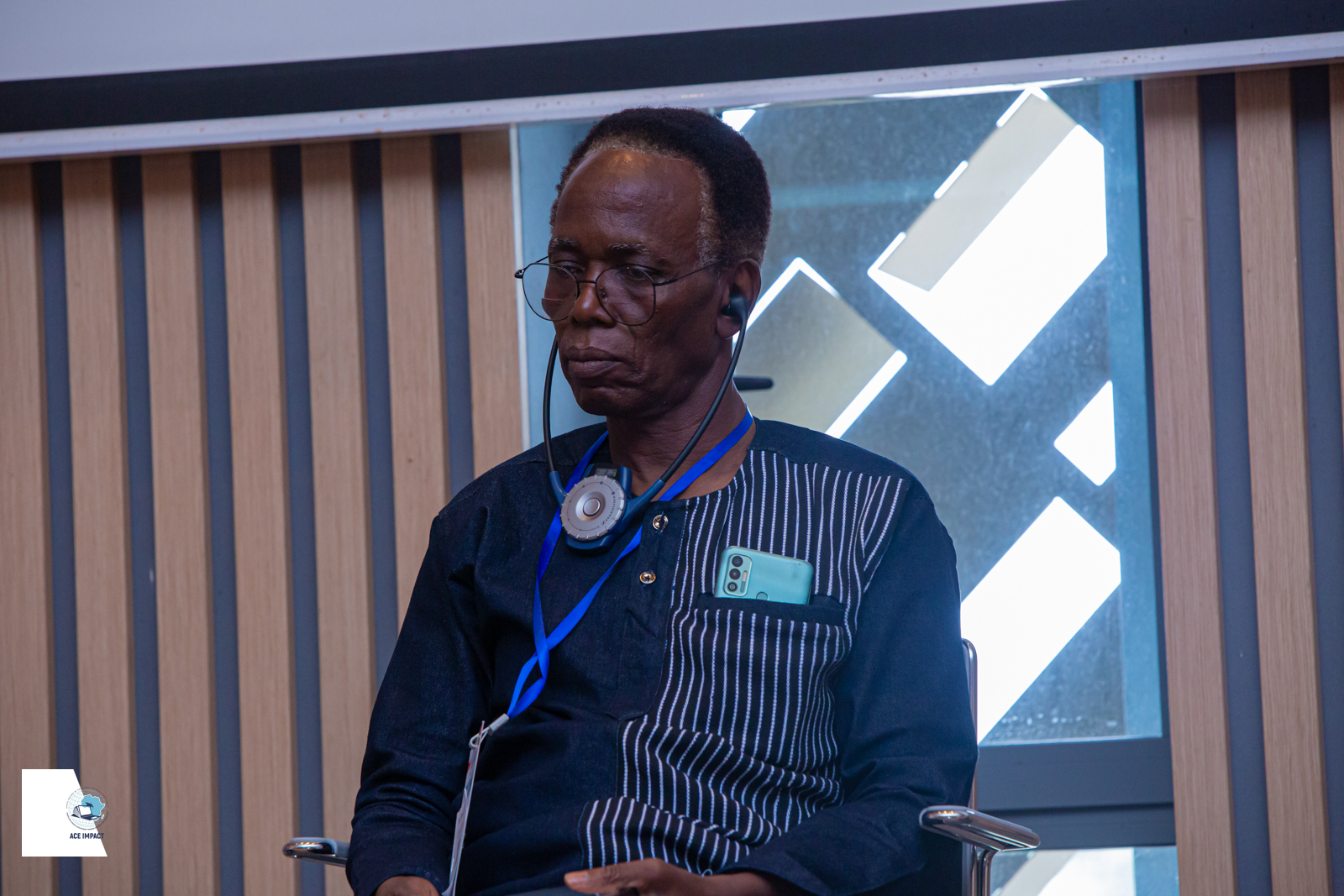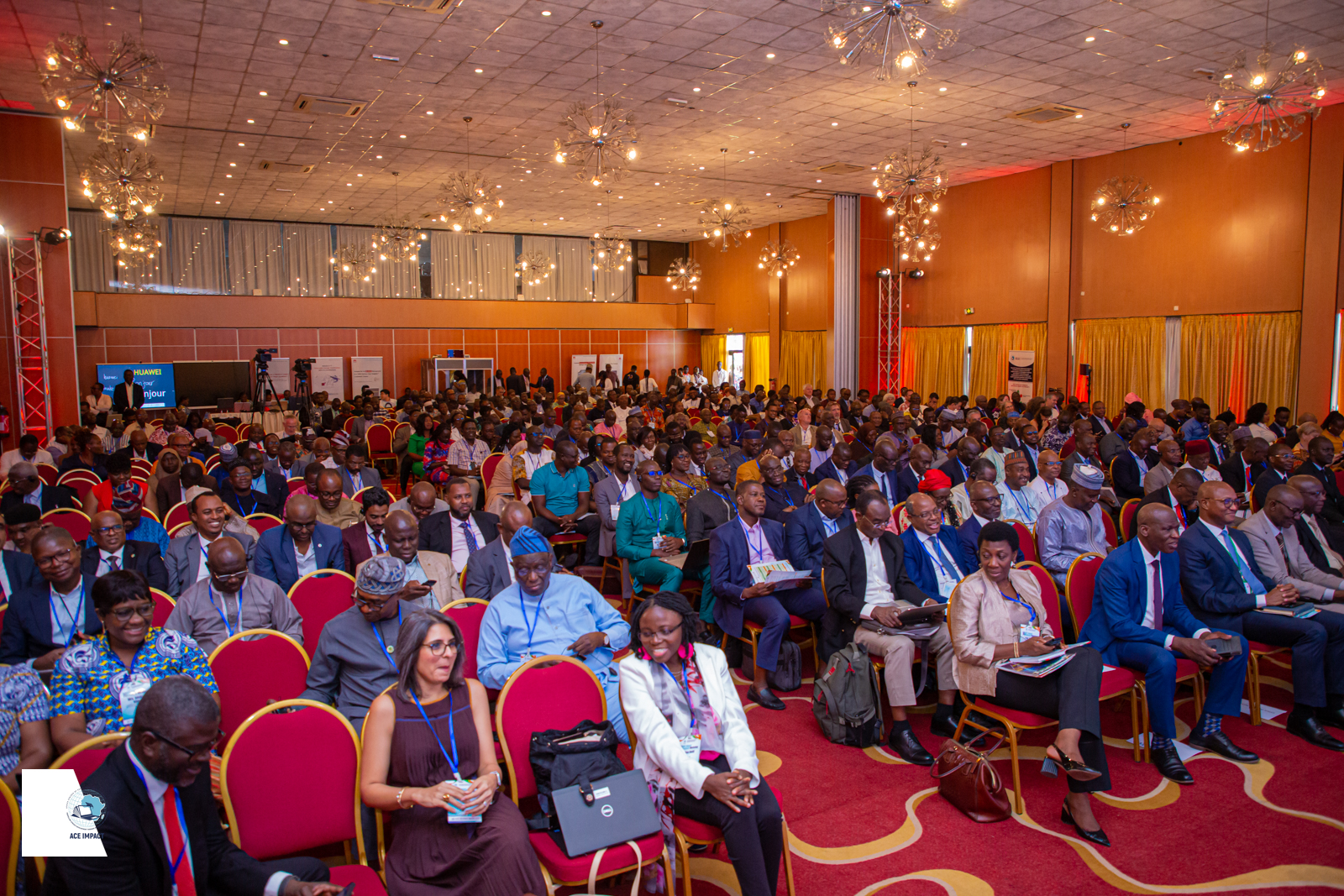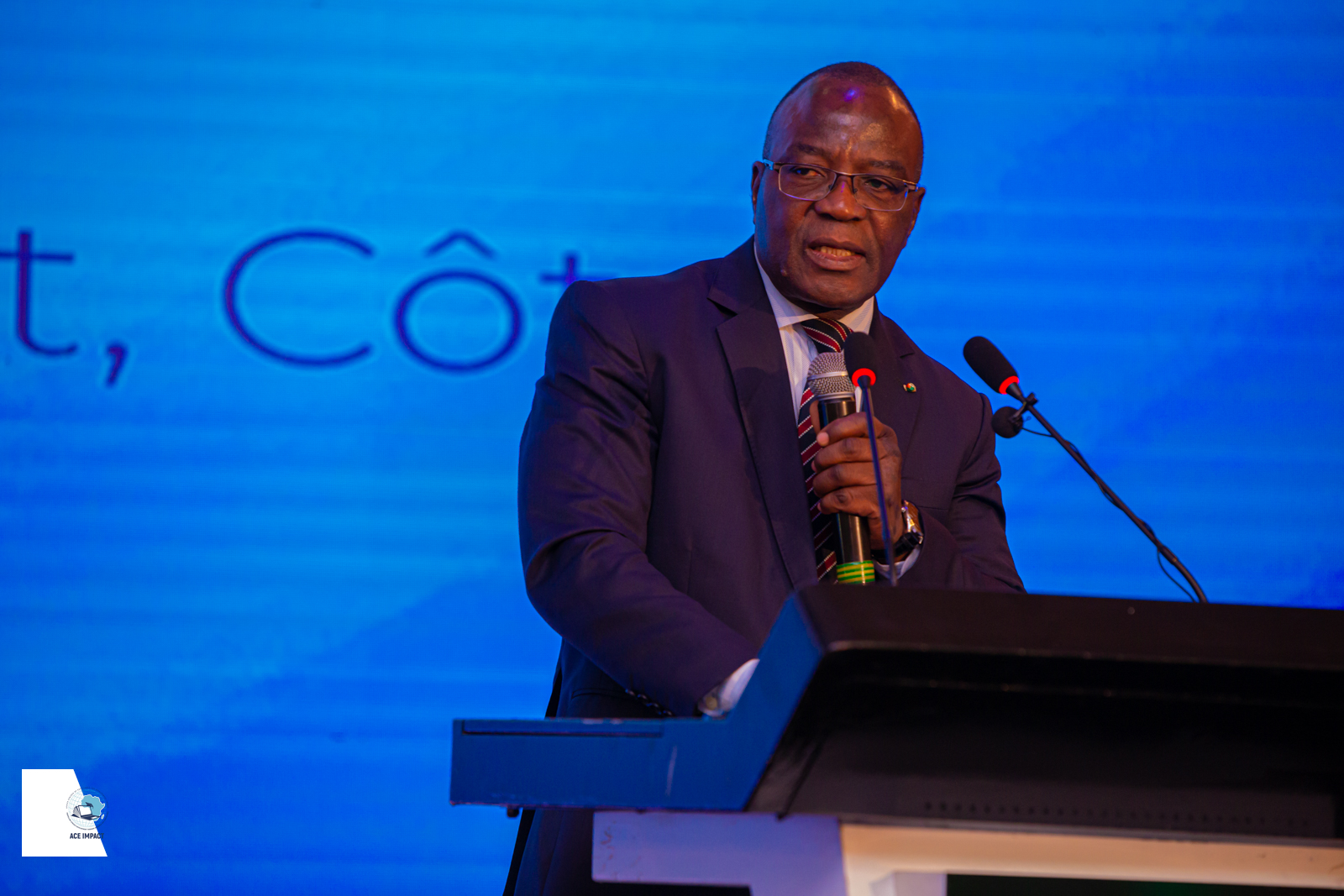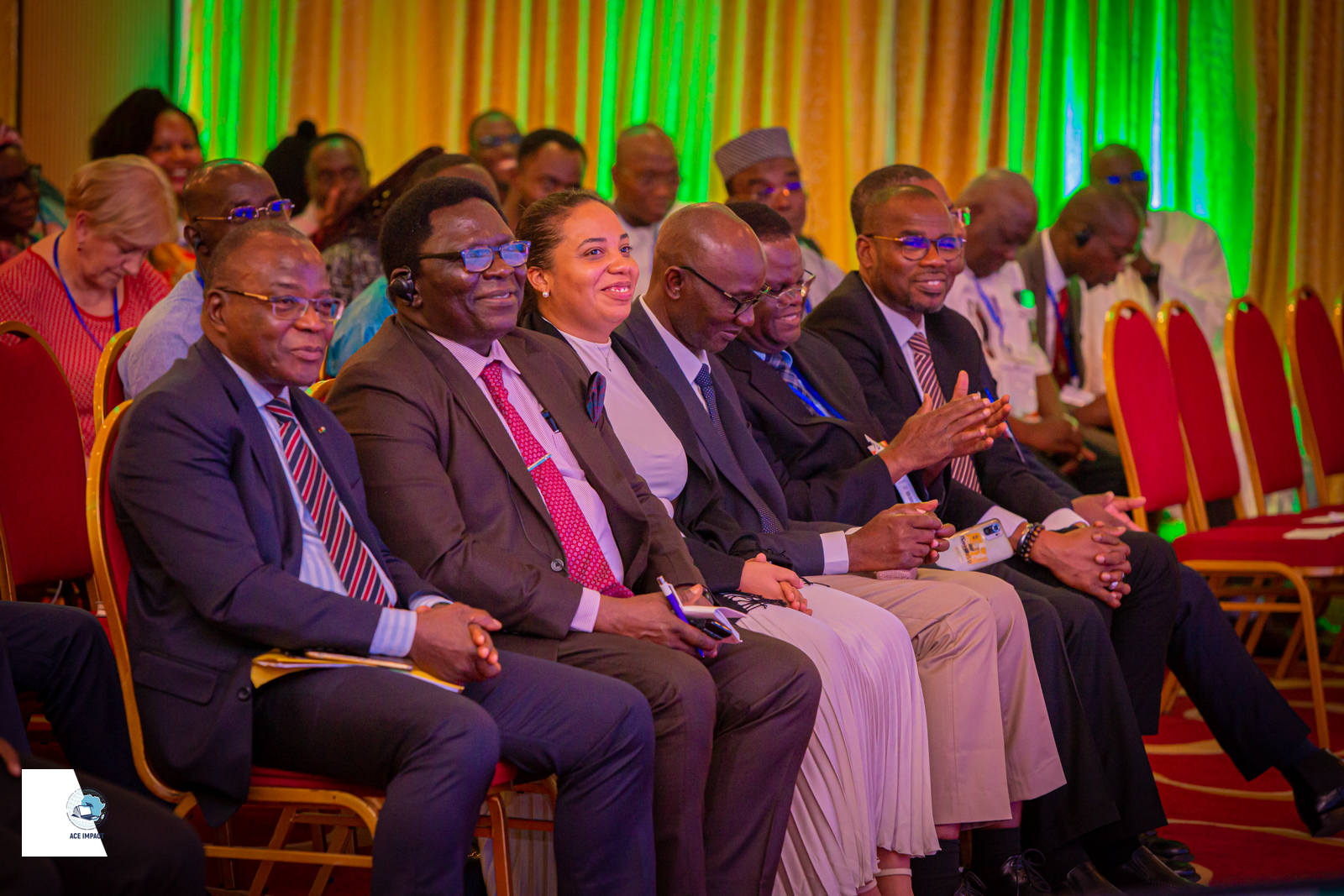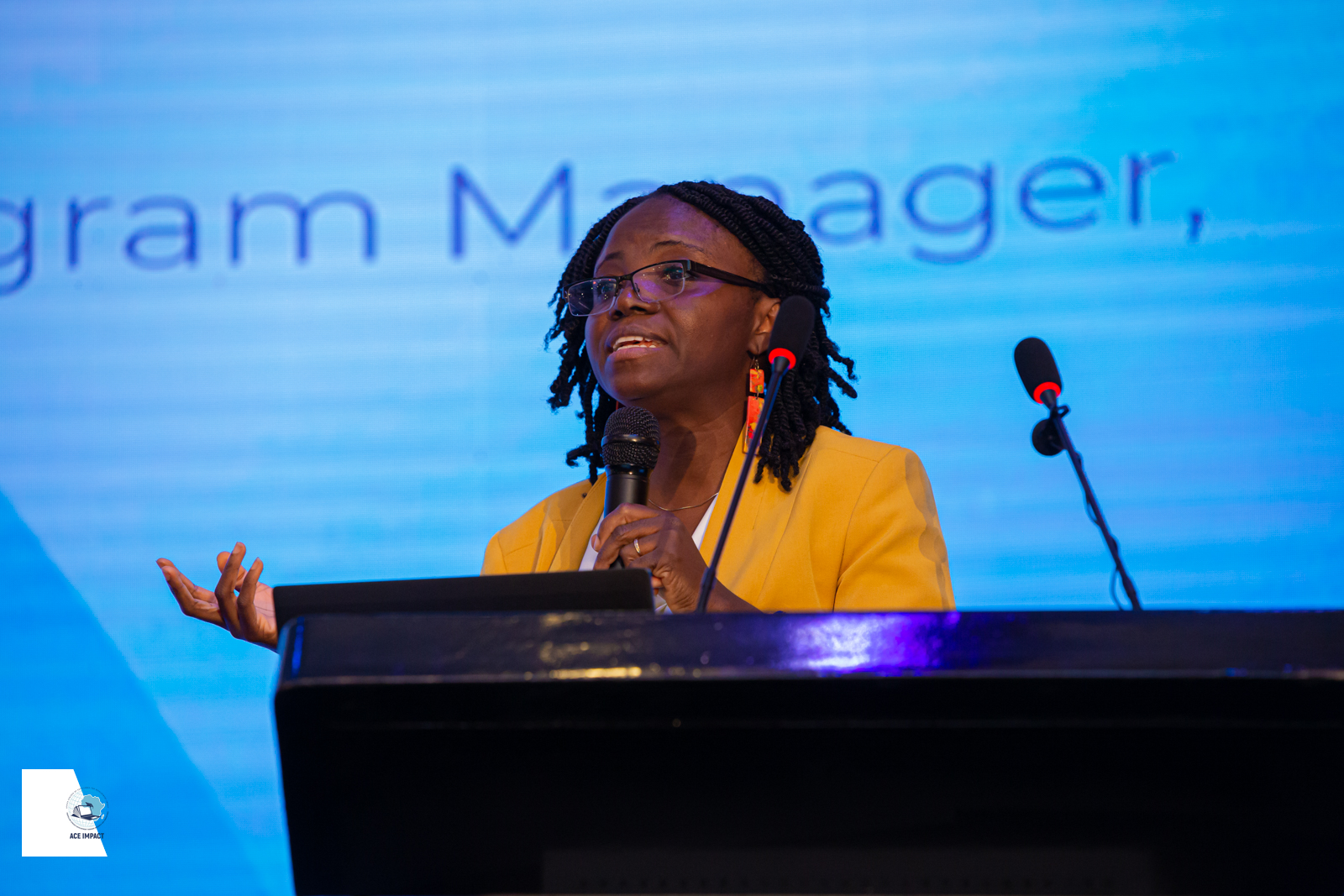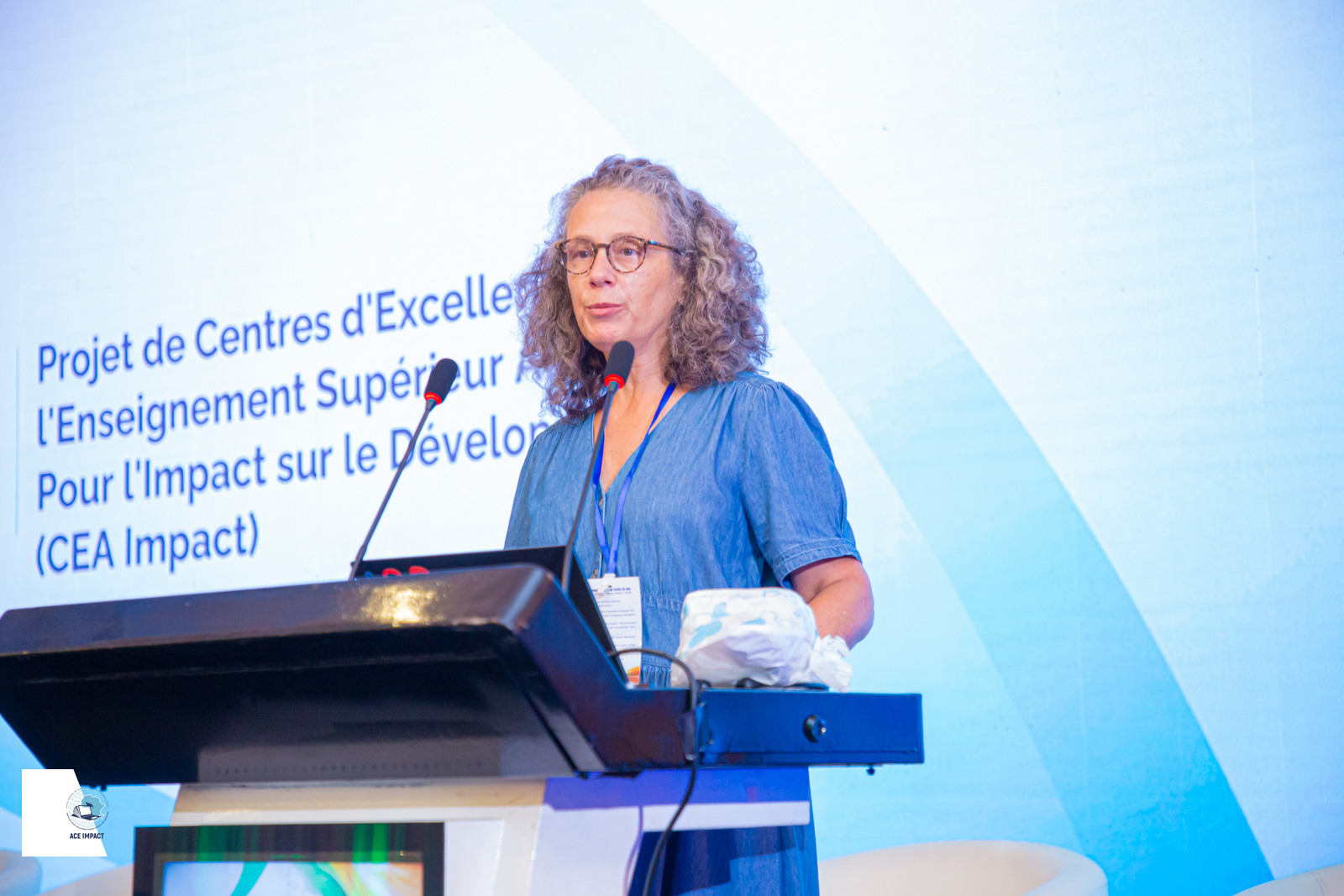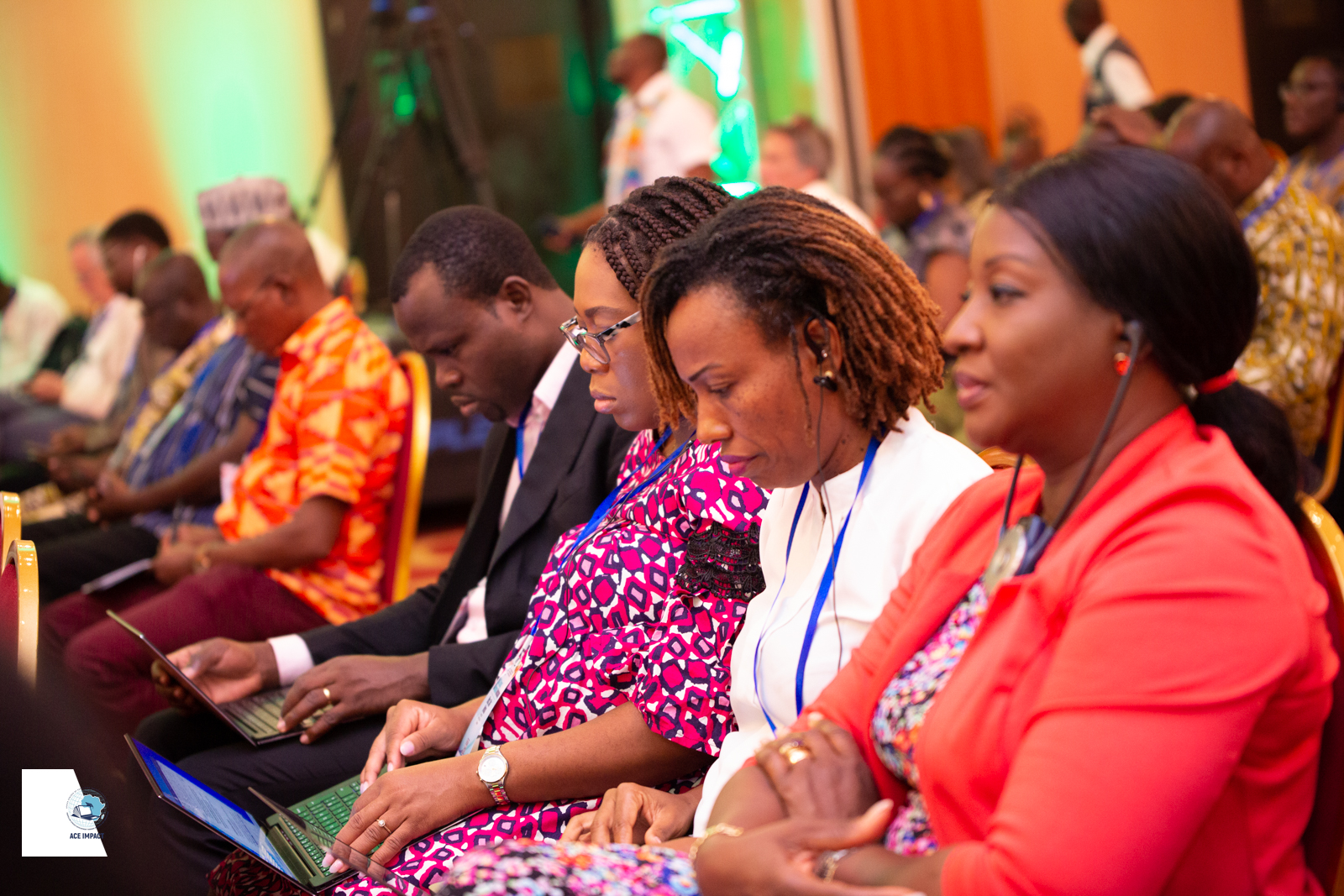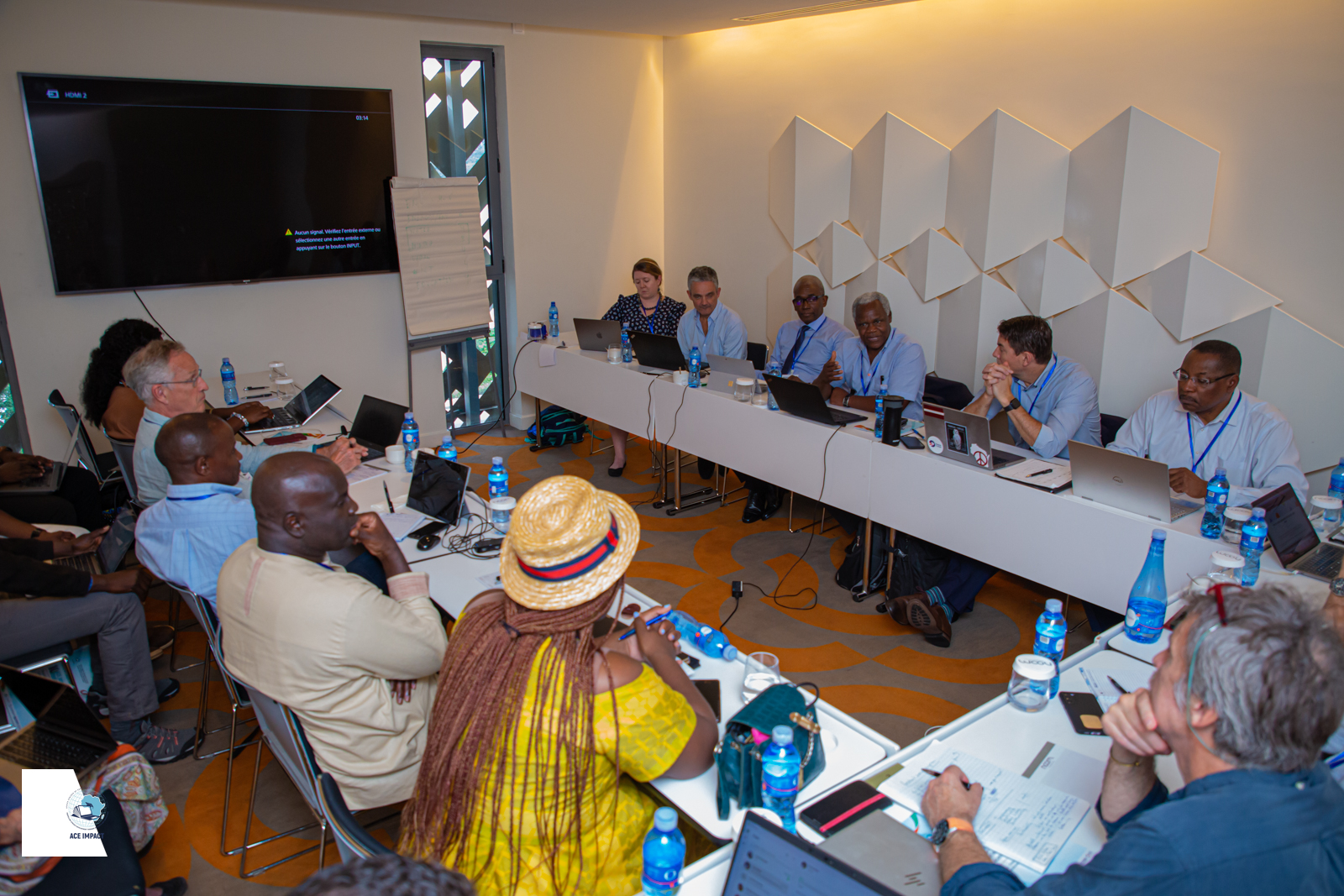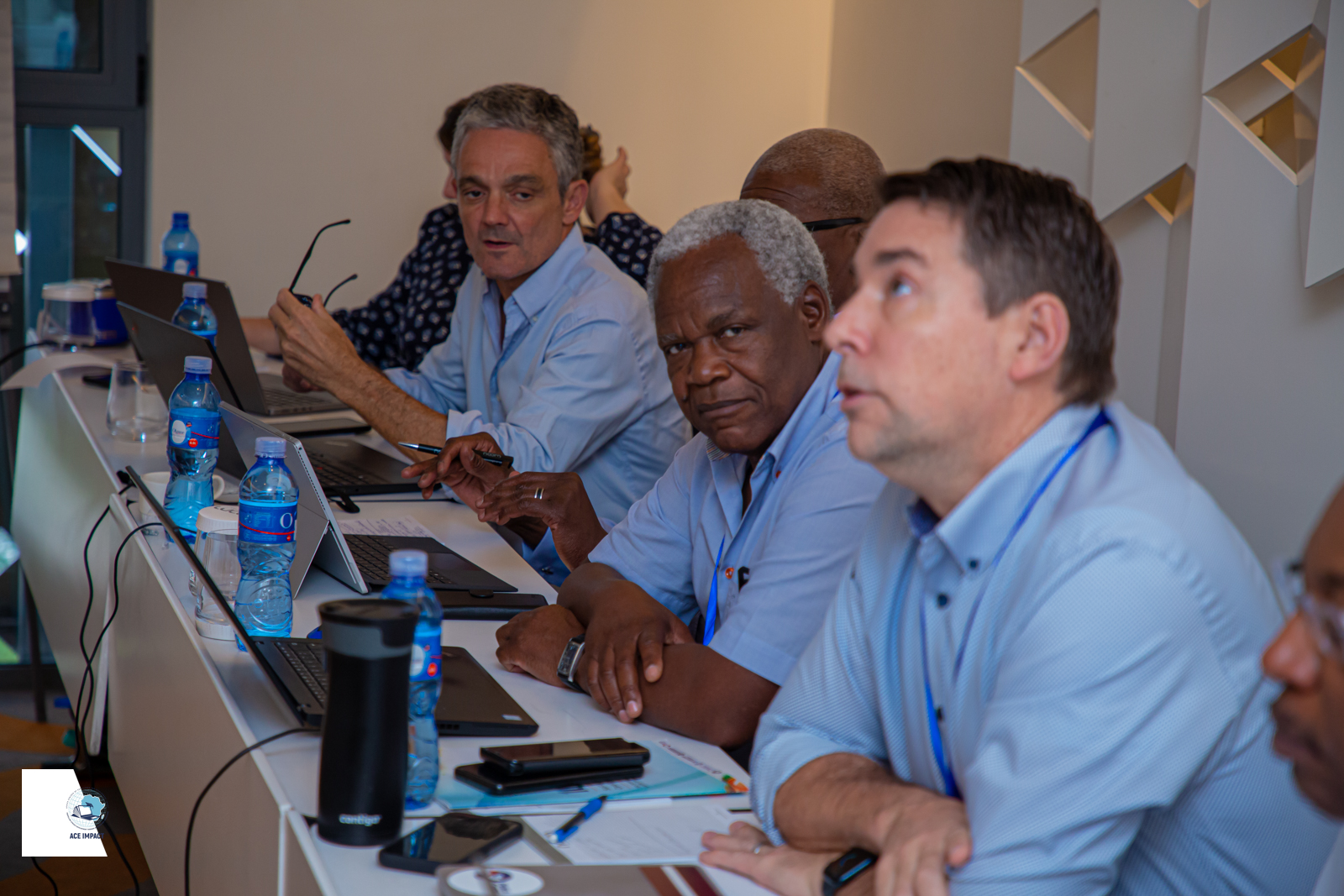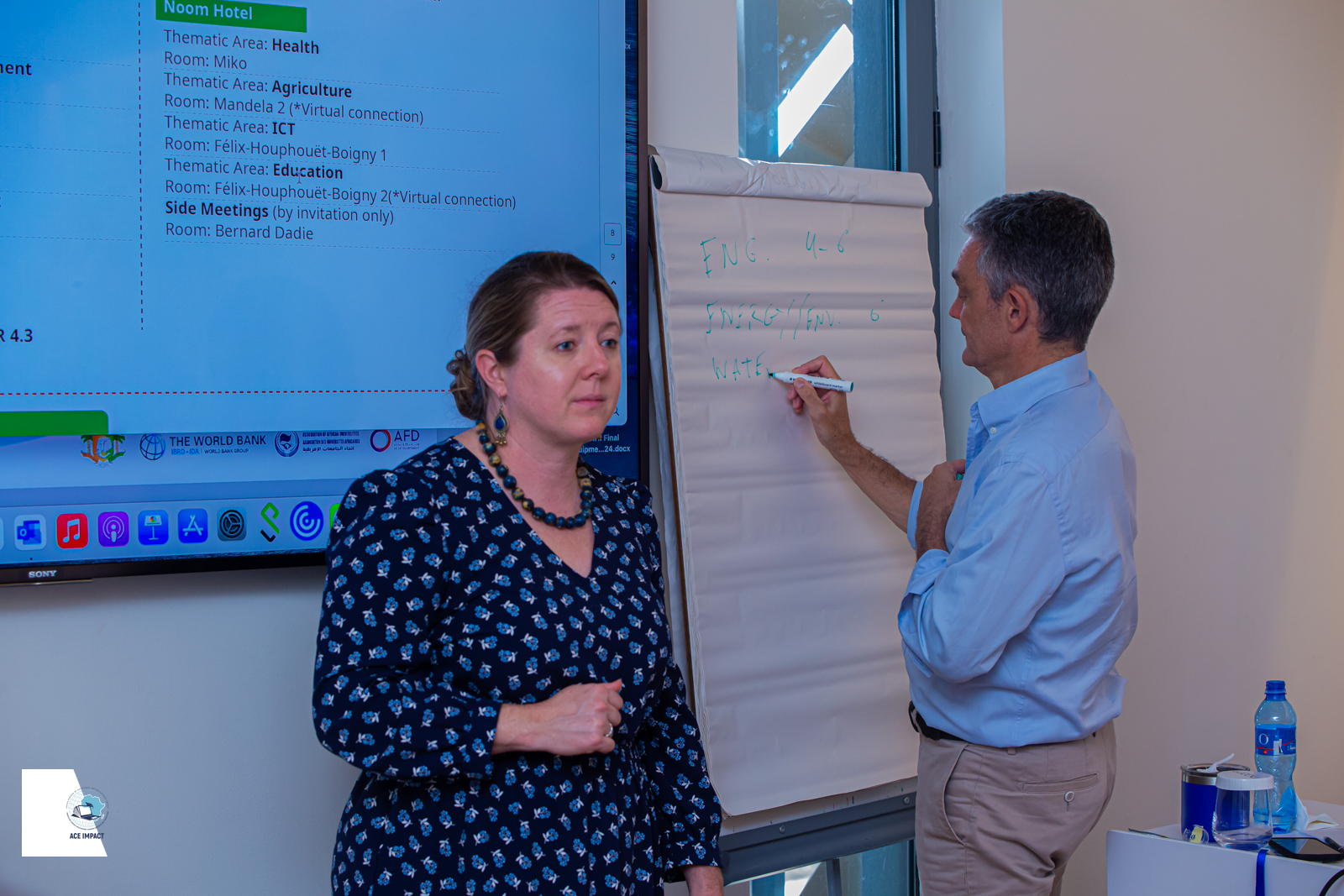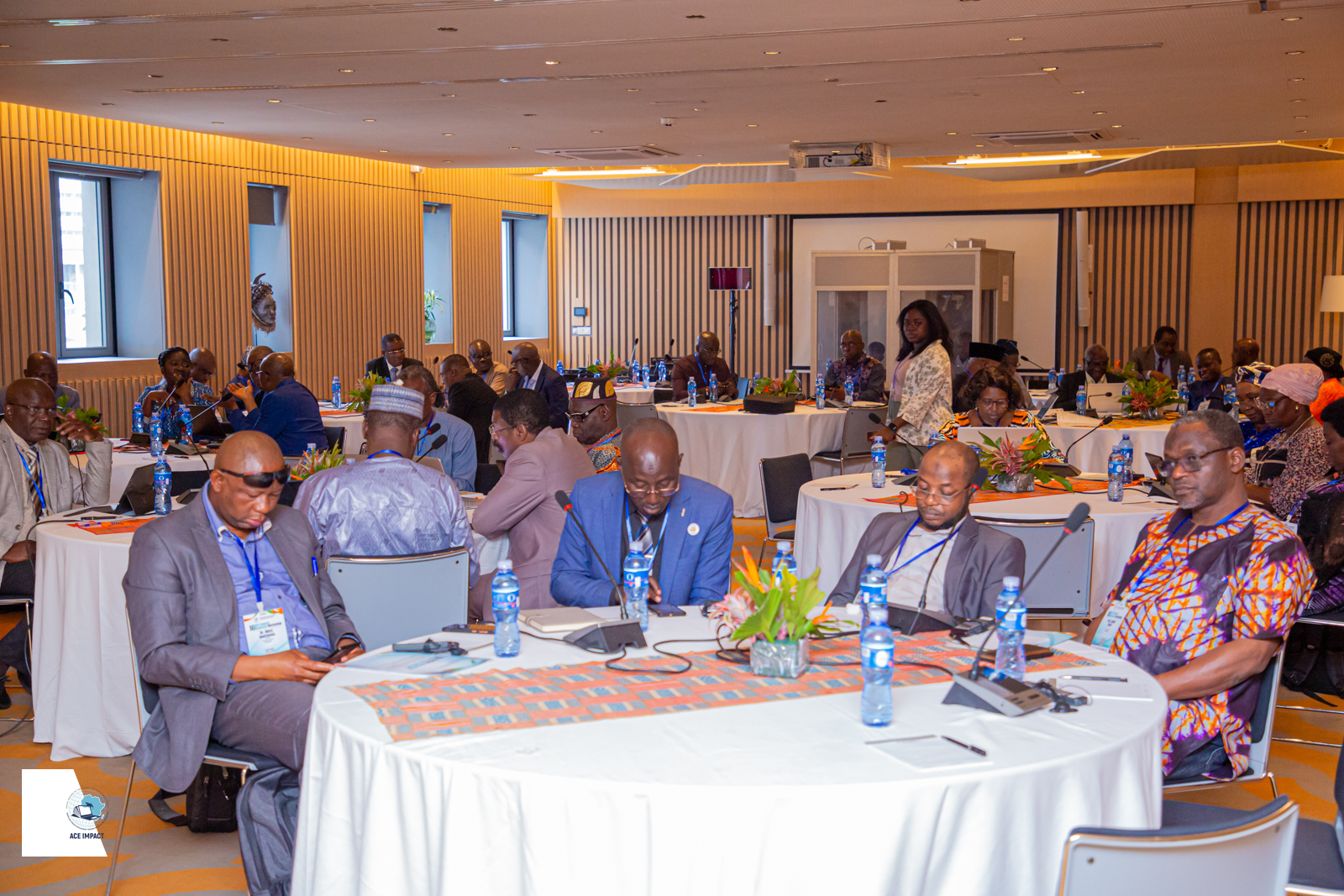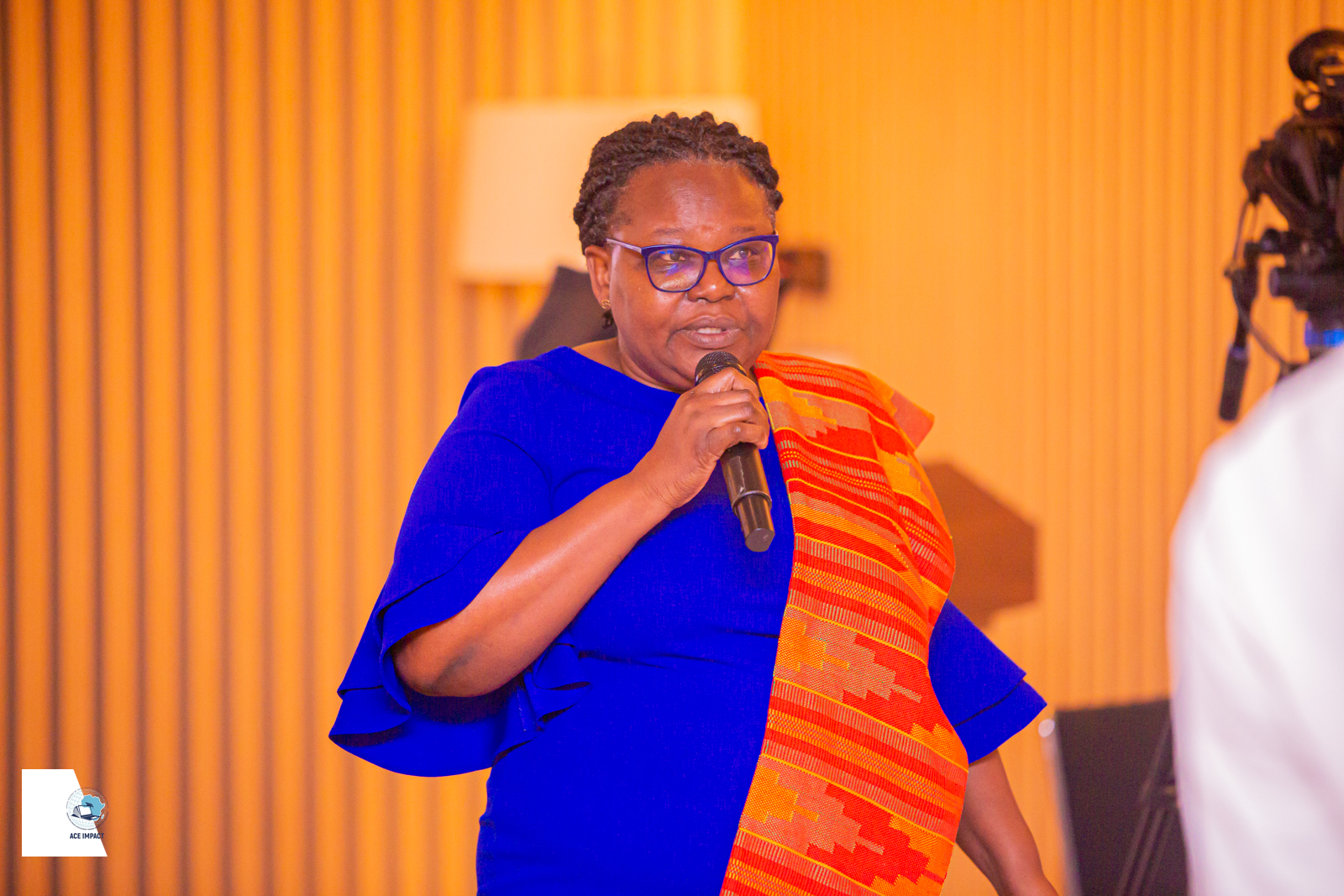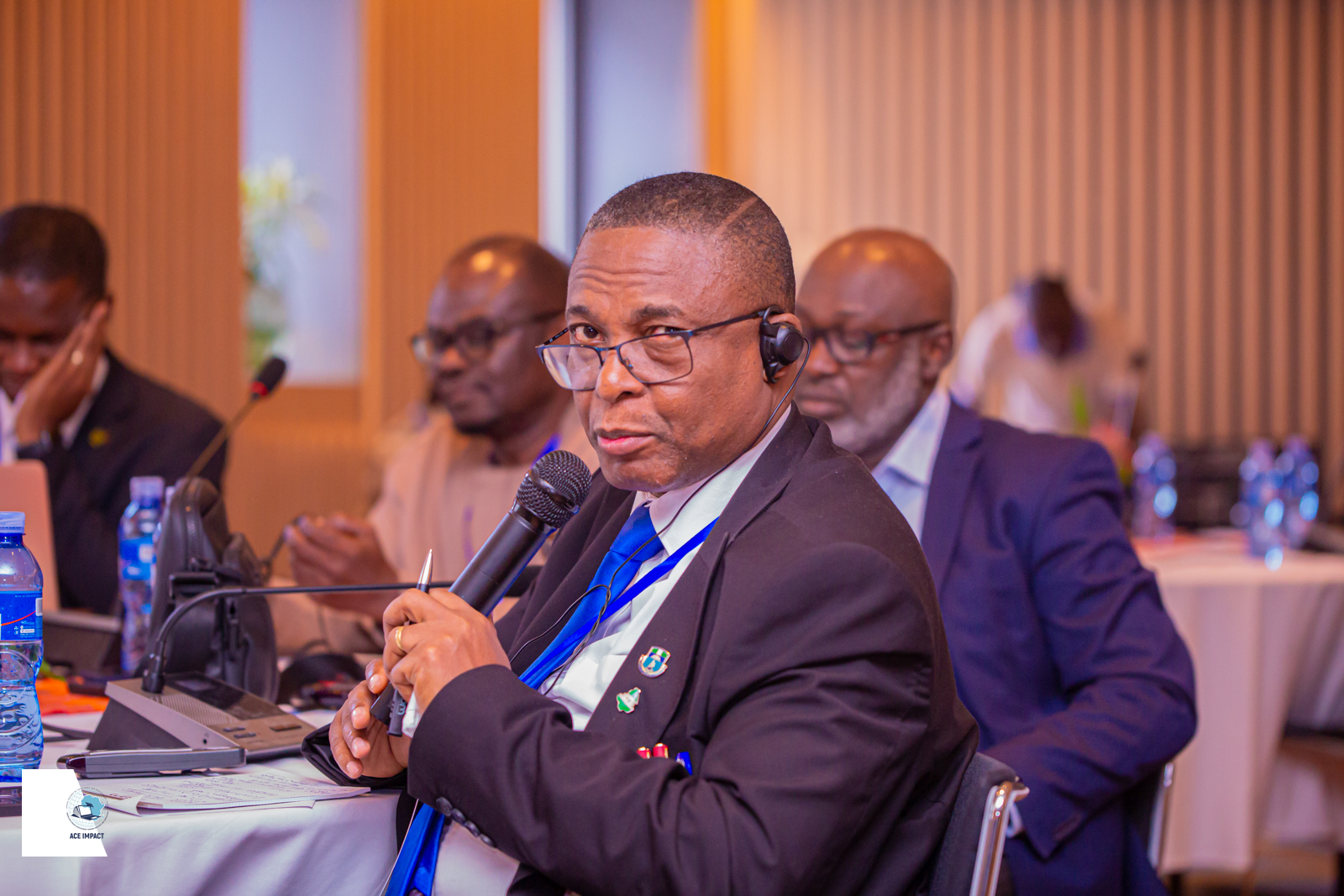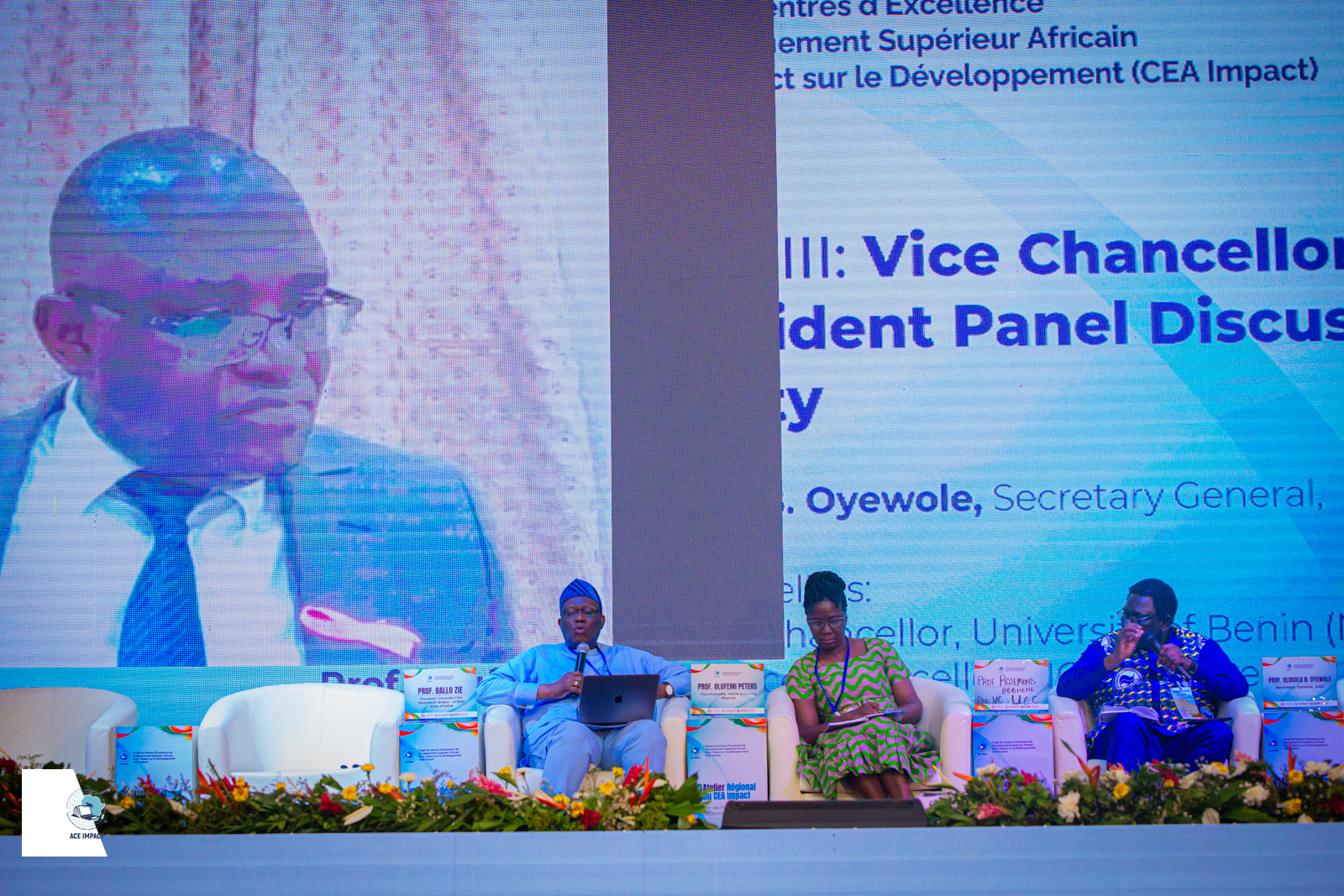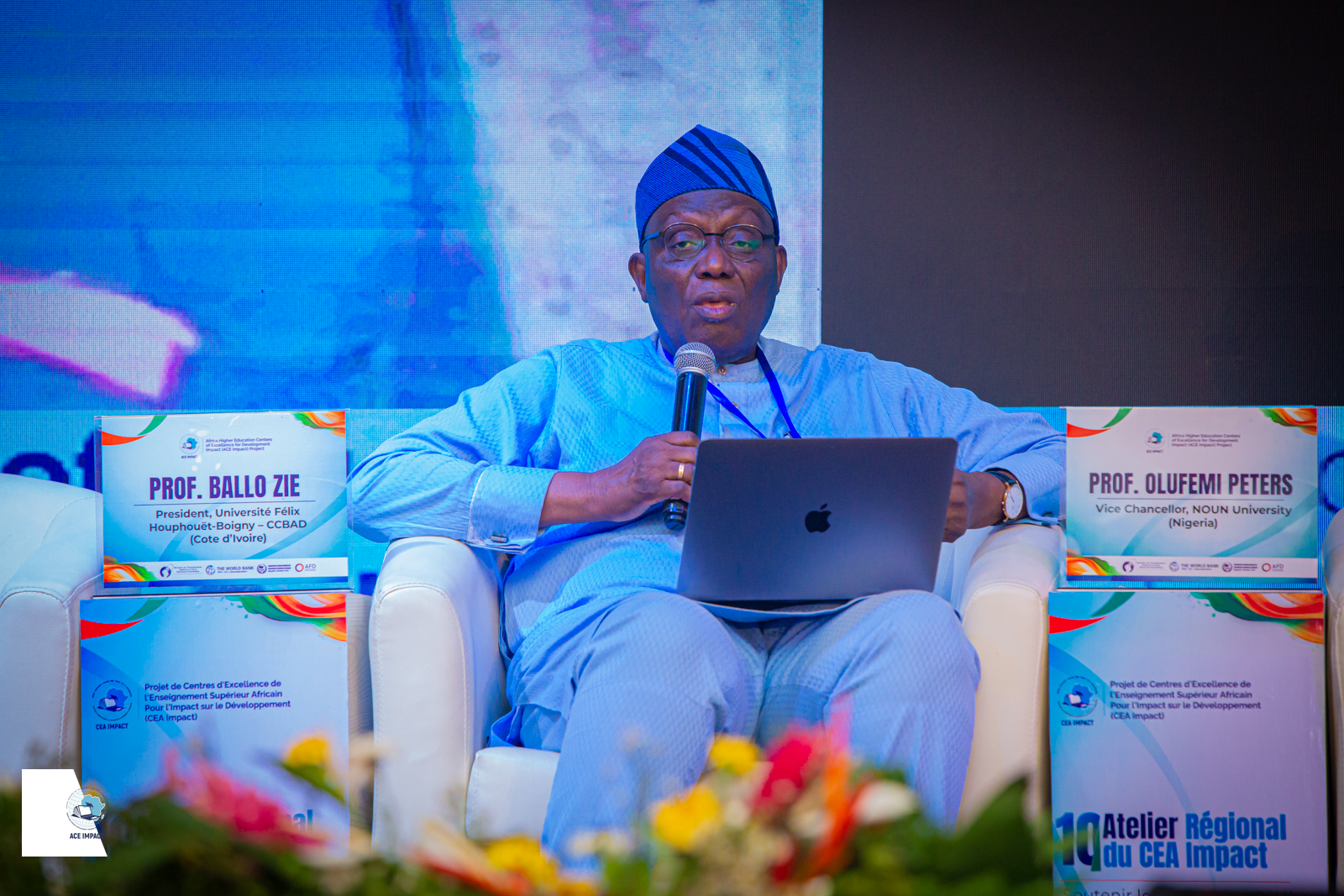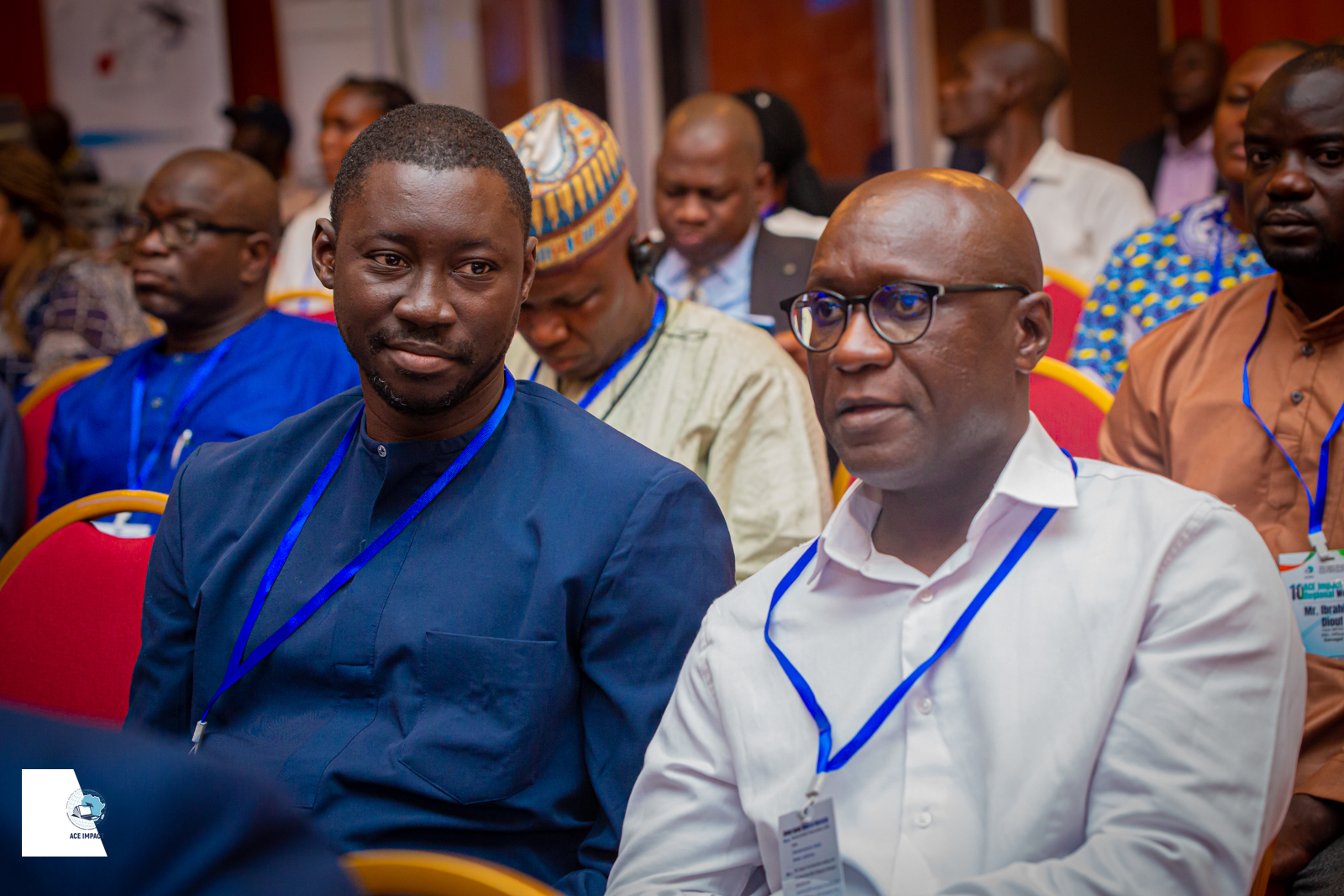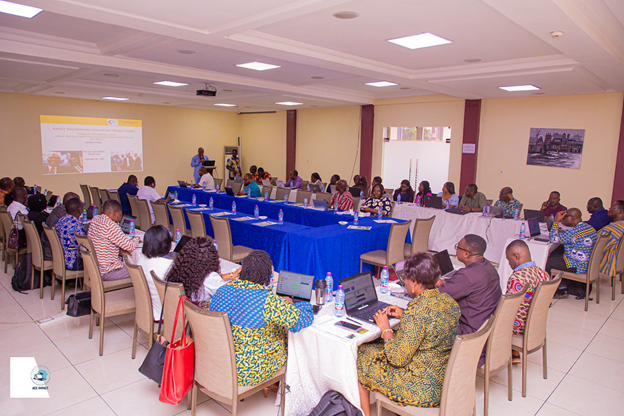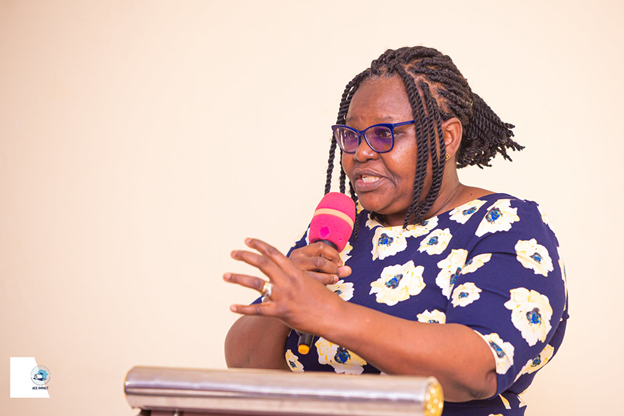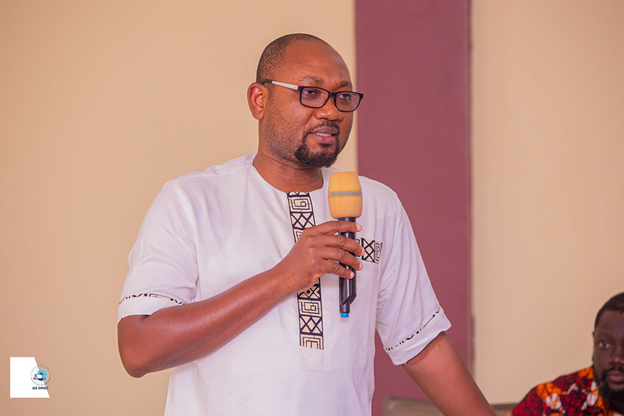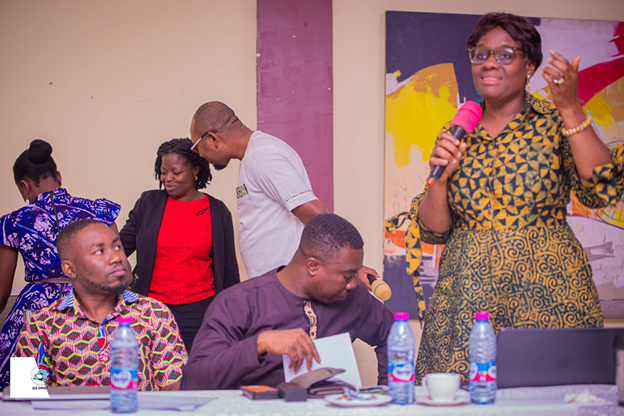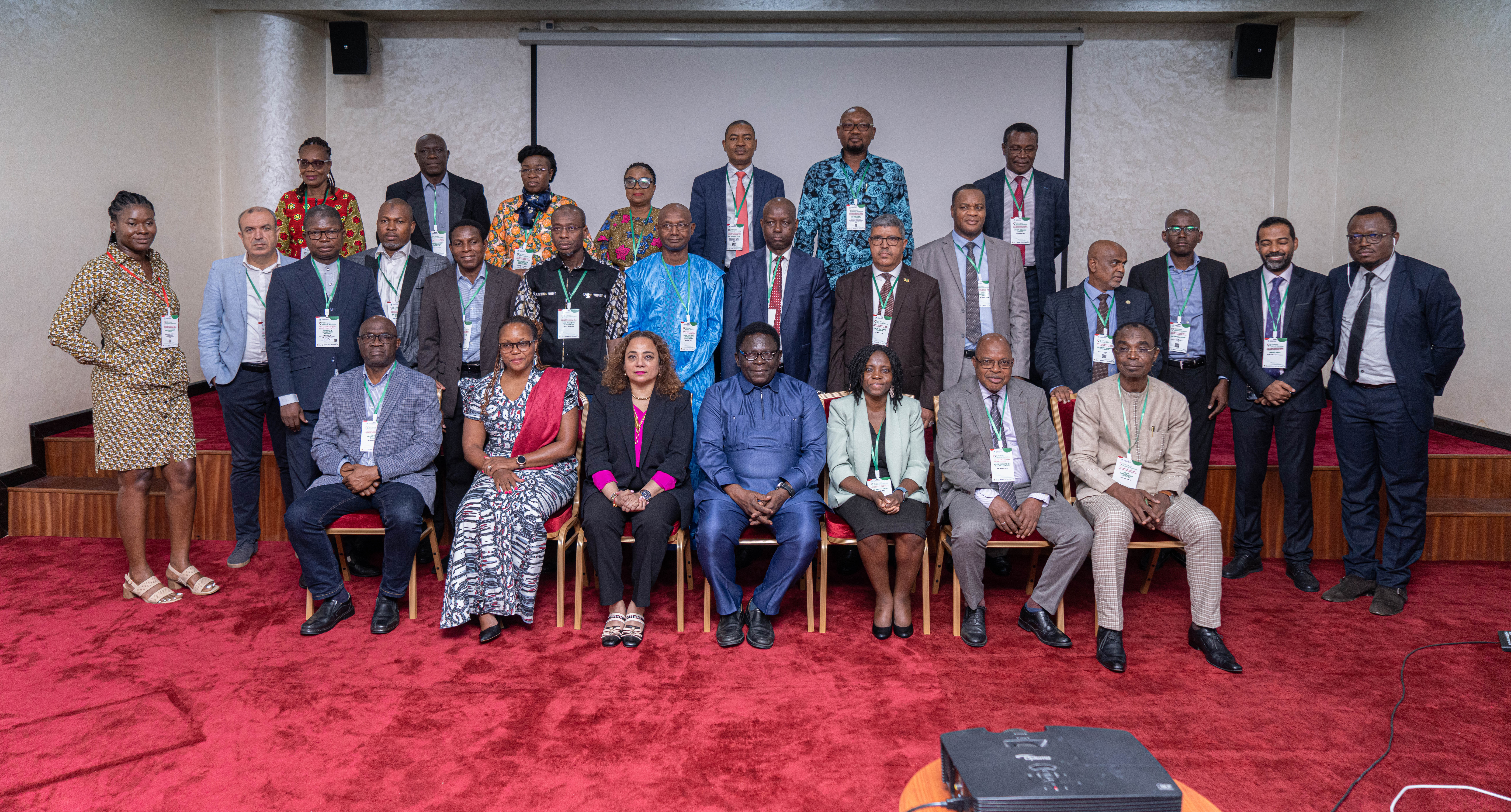The ACE Impact Project has surpassed its targets for key project development objectives, earning commendation from stakeholders for this achievement
The Africa Higher Education Centres of Excellence for Development Impact (ACE Impact) project has not only met but exceeded the targets for critical project development objectives (PDOs) despite still having over one year to its close. This significant feat was revealed by the Senior Project Manager at the Regional Facilitation Unit (RFU) at the Association of Universities (AAU), Dr. Sylvia Mkandawire. Dr Mkandawire presented these achievements at the project’s 11th biannual regional workshop held virtually from Monday, April 29, to Tuesday, April 30, 2024.
The ACE Impact project, a testament to the World Bank’s commitment to enhancing the quality and quantity of postgraduate education in Africa, has established 54 centres in 35 universities across eleven West and Central African countries. These centres, supported by the project, are fostering regional specializations in the thematic areas of STEM, environment, health, agriculture, applied science, and education.
The ACE Impact project fosters a culture of collaboration and transparency through its biannual regional workshops. These workshops serve as a platform for stakeholders to update on the project’s status, review its progress, report challenges, and provide technical and operational support. The first day of the recent workshop was dedicated to a Project Steering Committee meeting, which ran concurrently with technical and operational implementation support sessions. These sessions covered various aspects of the project, including monitoring & evaluation, procurement, financial management, and environmental and social safeguards. The workshop featured insightful presentations and interactions, discussing the project’s status, challenges, and proposing potential solutions.
Presenting the overall progress report of the ACE Impact project, Dr. Sylvia Mkandawire revealed the project had exceeded its targets for critical PDOs in the areas of student enrolment, gender and regional inclusion, and internships and was on track to meeting other PDOs related to international accreditation and external revenue mobilization. Specifically, the project has trained 29,825 students, comprising 3,195 PhDs, 10,402 masters, and 16,228 professional short course participants in the various thematic areas. This number of students trained under the project represents 103% of the target. The project, which has also exceeded its gender and regionality targets, recorded 9,805 female students, representing 102% of its target, and 9,223 regional students, which equals 107% of its target. Finally, the ACE Impact project has exceeded its internship target, recording 7,129, 102% of its target.
For other key project development objectives (PDOs), the project has recorded significant results and is on track to meeting, and even exceeding, its target by its end period in June 2025. For example, the centres of excellence under the project have received accreditations for 32 international programs (representing 76%), which have contributed to exceeding its regional student population by 7% more than a year to its close and continue attracting teeming international students from many different countries within the sub-region. To institute a regular cash flow and ensure project sustainability, the Centres of Excellence have mobilized 79.3 million dollars (representing 85%) in external revenue from their financial sustainability drive. These funds have come from sources and initiatives such as prioritizing and winning significant research grants and mounting fee-based short professional courses to exceed the program target.
In her presentation, Dr. Mkandawire attributed the project’s remarkable feat mainly to the dedicated, hardworking, tenacious centre leaders, teams, and other key players. She acknowledged them for their commitment to the project and took a moment to recognize and congratulate those whose unwavering dedication and contributions to the ACE Impact project had won them awards and recognitions within the reporting period. These were Prof Hadiza Galadanci of the Africa Centre of Excellence for Population Health and Policy (ACEPHAP) for the receipt of an Award for Excellence on Women’s Day celebrations; Prof. Christian Happi of the Africa Centre of Excellence for Genomics of Infectious Diseases (ACEGID) for being selected by Hallmarks of Labour Foundation – Role Model for outstanding contributions in Science; and Prof. Friday Okonofua of the Africa Centre of Excellence for Reproductive Health Innovation (CERHI) for being appointed the Vice President of the Nigeria Academy of Sciences. Others were Prof. Daprim Ogaji of the Africa Centre of Excellence for Public Health and Toxicological Research (ACEPUTOR) for being appointed the chairman of the Rivers State Hospital Management Board, and Prof. Adesola Aderounmu of OAU ICT-Driven Knowledge Park (OAU-OAK) for receiving an Outstanding Scholar of the Year Award in the UK Global Skills Hub at the University of Nottingham.

Dr. Mkandawire also acknowledged the RFU’s efforts to significantly contribute to the project’s high achievement rates and the recognition of its leaders and other critical players. She commended the RFU team, which she leads, for offering robust implementation support to the centres, particularly in monitoring & evaluation, procurement, financial management, environmental and social safeguards, and communications.
In terms of the RFU’s contribution within the reporting period, the team, together with the World Bank and independent subject-matter experts, embarked on eleven on-site implementation support missions and organized several virtual implementation support missions to provide technical support to centres with low rates of achievement, disbursement, and fund utilization and to enhance their performance and earnings. The RFU, through its communications unit, with support from the individual centres, enhanced the project visibility through regular social media postings, website publications, AAUTV broadcasts, and outreaches to centres.
Dr. Mkandawire also commended the World Bank ACE Impact Team for their continuous support toward the sustainability of the project by spearheading the brokerage of strategic partnerships, especially with the Institute of Research for Development (IRD), to establish thematic networks to further the impact of the project and explore other opportunities within the inter-ACE networks. She also acknowledged the World Bank’s effort to initiate a partnership conversation in February 2024 with the UNHCR to enhance refugee inclusion in the ACE Impact project and higher education in general and is now seeking to connect the Africa Centres of Excellence to the European Centres of Excellence to advance the AU-EU Innovation Agenda, through the ACE International Partnership Workshop scheduled from Wednesday, May 8 to Friday, May 10, 2024, in Mauritius.
During the opening ceremony of the 11th regional workshop, all the speakers acknowledged the achievements of the ACE Impact project. In his opening remarks, for example, Prof. Olusola Bandele Oyewole, the AAU Secretary General, acknowledged the enormous impact of the ACE Impact project, emphasizing how the project had become a beacon of hope for successive generations of academics and researchers and presented a tremendous opportunity for Africa to build a valuable base of human capital serving as the engine for its economic transformation.
Prof. Oyewole, thus, stressed the need for the project to be sustained to continue making significant impacts in the participating countries and beyond and called for all hands to be on deck to outline key strategies for boosting the project’s sustainability. He encouraged the centres to drive the partnerships that the World Bank has brokered to achieve more profound impacts in their respective thematic areas of research, private sectors, and societies, especially as the project ends in June 2025. He also urged stakeholders to seize the opportunity of the project’s end to reflect on the momentous journey and chart a path for future endeavours. Prof. Oyewole emphasised that for the project to achieve sustainability and leave a lasting legacy, strong leadership is essential.
Prof. Oyewole pledged AAU’s continuous commitment to the project, its collaboration with centres, and the project’s focal points in amplifying its substantial achievements and impacts, through implementation, and other necessary support. He revealed AAU’s intention to engage industry, governments, and other relevant stakeholders to invest in the ACE Impact model.
For their part, the funders of ACE Impact—the World Bank and the French Development Agency (AFD)—indicated how proud they were of the project’s contribution to training highly qualified staff to stimulate research and the needed innovation in strategic areas, highlighting increased enrolment, employment, publications, and external income generation.
In their various remarks, Dr. Namrata Tognatta, Senior Education Specialist and World Bank ACE Impact Project Task Team Lead, and Emilie Petereit, AFD’s Deputy Director of Education, Training, and Employment, commended the ACEs for their several contributions to the project, which has led ACE Impact to exceed its targets and encouraged them to continue to be proactive in enhancing their activities. They expressed optimism for improved performance by the end of the project in 2025 and pledged the continued support of their respective institutions for the project.
Regarding critical priorities and next steps for the ACE Impact project for the rest of the year 2024, stakeholders intend to prioritize activities related to the dissemination of the project’s achievements, promote the ACE Model and seek more sustainability partnerships, expedite initiation and completion of civil works, as well as support country-level ACE@10 celebrations. Additional priority areas highlighted included the verification of project results and disbursements, planning and organisation of timely expert site visits and virtual support to the centres, organisation of capacity-building activities for centres on project sustainability and operational support, and the planning and hosting of the ACE@10 celebration and the 12th regional workshop.
